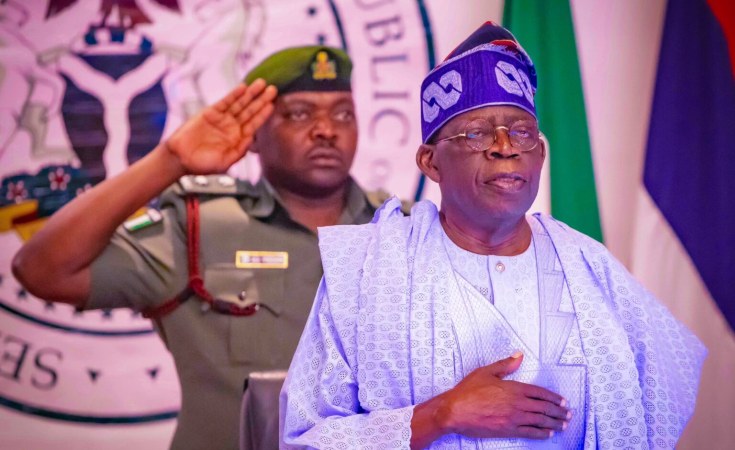The significance of June 12 in Nigeria's history cannot be over-emphasised. It represents a crucial moment in the nation's democratic journey, a watershed of sorts, symbolising the triumph of the will of the people over oppressive rule.
June 12 is now officially recognised as Democracy Day in Nigeria, a day to mark the resilience of the Nigerian people and reaffirm their commitment to upholding democratic principles and values.
On June 12, 1993, a historic presidential election took place, widely regarded as free, fair, and peaceful. The Nigerian people turned out in large numbers to cast their votes, expressing their collective desire for change and the strengthening of democratic values.
Unfortunately, the military regime led by then military president, General Ibrahim Babangida annulled the election results, denying the people the chance to witness the realisation of their democratic aspirations.
However, the Nigerian people refused to accept this injustice and embarked on a long struggle to assert their democratic rights. Leading this struggle was the iconic figure Moshood Kashimawo Olawale Abiola, the presumed winner of the June 12 election. His courageous defense of democracy and subsequent arrest and detention solidified his place as a symbol of Nigeria's fight for democracy.
In the considered opinion of this newspaper, the recognition of June 12 as Democracy Day by former President Muhammadu Buhari is seen as a beacon of hope for Nigeria and a reaffirmation of our commitment to democratic governance. It represents a turning point in the nation's history, where we acknowledge the sacrifices made by those who fought for democracy and honour the memory of those who lost their lives during the struggle.
By celebrating this day, we not only commemorate the past but also reignite the spirit of democracy within ourselves, ensuring that the principles of justice, liberty, and equality continue to guide our nation.
It is worth noting that this year, we celebrate Democracy Day after a divisive general election in which President Bola Tinubu emerged as the winner. The president, being one of the key actors in the June 12 struggle, will celebrate his first Democracy Day and hopefully use the opportunity to reflect on not just what it symbolizes but also the true values that must upheld at all times
However, it is disheartening to realise that after 24 years of unbroken democracy, true democrats in the genuine sense of the word are scarce.
Many politicians engage in actions that are contrary to democratic principles. We strongly condemn and frown upon politicians who exploit our ethnic and religious cleavages to gain unfair advantages. Such behavior should not be tolerated in a democracy. Politicians must learn to abide by the rules, and the inclination to win by any means necessary should be condemned and punished.
Moreover, it is alarming to observe the increasing role of the judiciary in our elections after 24 years of unbroken democracy. We have consistently criticised this trend on this page as it contradicts the essence of democracy. We firmly believe that the people should have the final say in determining who governs them at all levels.
However, it is reasonable to assume that the judiciary's growing influence is a response to the deviant actions of some politicians. This trend must be halted.
We are also of the opinion that the electoral process should be seen to be improving with each election cycle. That is one sure way of not involving the judiciary in matters that are better handled by the electorate and decided unequivocally at the polling booth. To that extent, the Independent National Electoral Commission (INEC) must endeavor to be above board always.
Furthermore, in our considered opinion, Nigerians have not yet fully experienced the dividends of democracy. Insecurity has been pervasive, with more Nigerians losing their lives to insecurity in the past 24 years than during all the military administrations combined.
As we commemorate June 12 as Democracy Day, we call on President Tinubu to strengthen our institutions. These institutions are indispensable for the firm establishment of democracy.
Additionally, we implore the President to steer the country toward a sustainable economic path. We support his recent decision to remove fuel subsidy , and we urge that funds be judiciously utilised in other sectors. Economic growth is the most effective palliative the government can offer.
Furthermore, we strongly recommend the swift implementation of the proposal for the establishment of state police. We believe it will go a long way in addressing the twin problems of banditry, kidnappings, and other security challenges in the country.
As Nigerians, we have made significant strides in our democratic journey, and June 12 serves as a testament to our resilience and unwavering commitment to democracy. By designating this day as Democracy Day, we pay homage to those who fought for our democratic rights and recommit ourselves to the ideals of a free, fair, and prosperous Nigeria.
Let us utilise this occasion to reflect upon the progress we have made, acknowledge the challenges we face, and work together to build a stronger and more inclusive democracy. May June 12 forever remind us of our duty to safeguard and promote the principles of democracy, ensuring a brighter future for generations to come.


